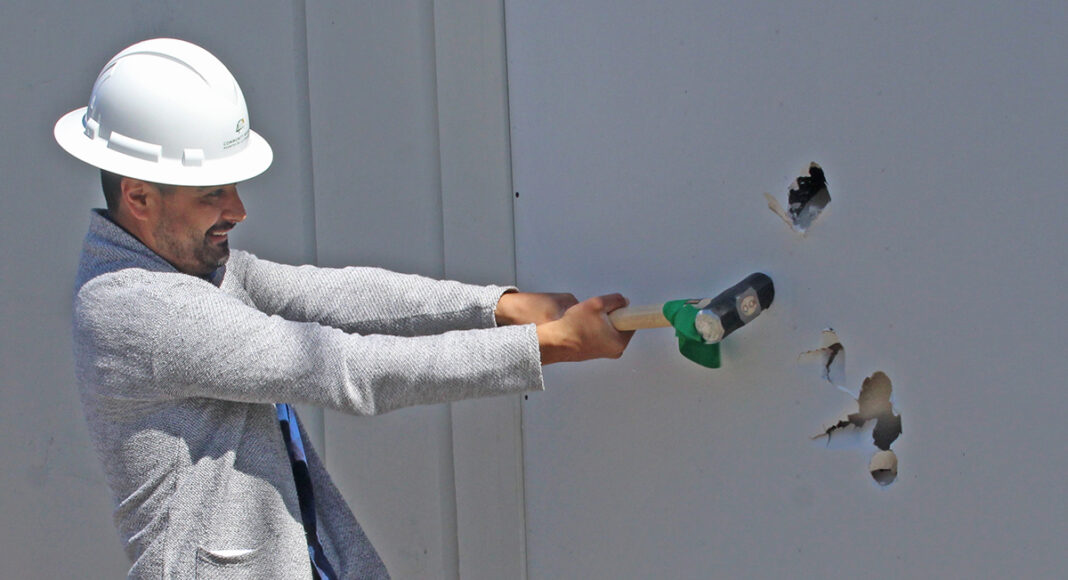In a brief ceremony in Community Bridges’ sunny outdoor atrium on March 25, the organization held a groundbreaking ceremony for what will eventually be Elderday’s new, expanded adult day health care center.
When complete, the center at 521 Main St. will provide services for Santa Cruz County’s older adults regardless of income level or immigration status, the only such facility in the county.
That’s important at a time when rising rents and an economy beset by the Covid-19 pandemic have left many worrying about how they will support themselves, let alone their aging parents.
Santa Cruz County 4th District Supervisor Greg Caput said that more than 44,000 adults over 65 live here, and added that residential care for older adults can cost $70,000 per year.
“It’s growing every year, and there are families who are trying to decide whether they can stay in their homes,” Caput said. “This larger, new facility is a win for the entire community.”
The move was made possible by a $2.5 million grant from Central California Alliance for Health.
Elderday, a program of Community Bridges, currently provides care for about 150 older adults with medical conditions such as dementia, and people with disabilities, allowing them to stay in their own homes and out of institutional care. The new space offers an additional 3,600 square feet than its current location in Santa Cruz. Organizers say the day services allow participants to continue living at home, and provide a place to socialize while their families are at work.
The organization has been operating out of its Santa Cruz location since 2012, with services that include social workers, physical therapists and nurses.
Watsonville City Councilman Francisco “Paco” Estrada praised the organization for 40 years of service in the county.
“The fact that these services are offered to everyone regardless of income is something to celebrate and be thankful for,” he said.
Community Health Trust of Pajaro Valley Executive Director DeAndre James said that the services provided are part of Santa Cruz County’s “health care landscape.”
“Sometimes the hardest thing is for us to take care of ourselves, and this is what this allows us to do: take care of ourselves,” he said.
Work will begin in April. The facility is expected to be ready in early 2023.













